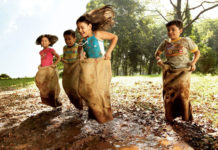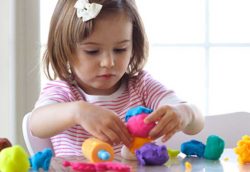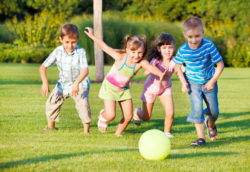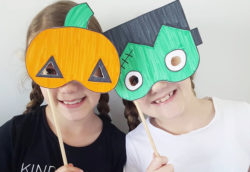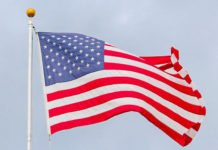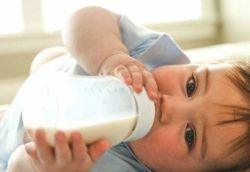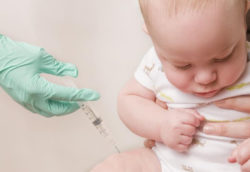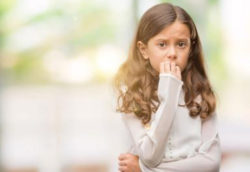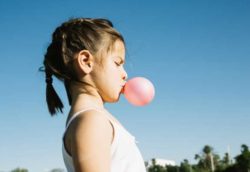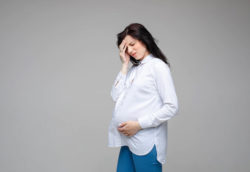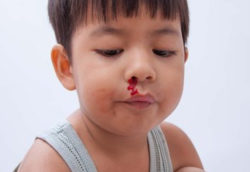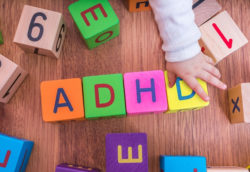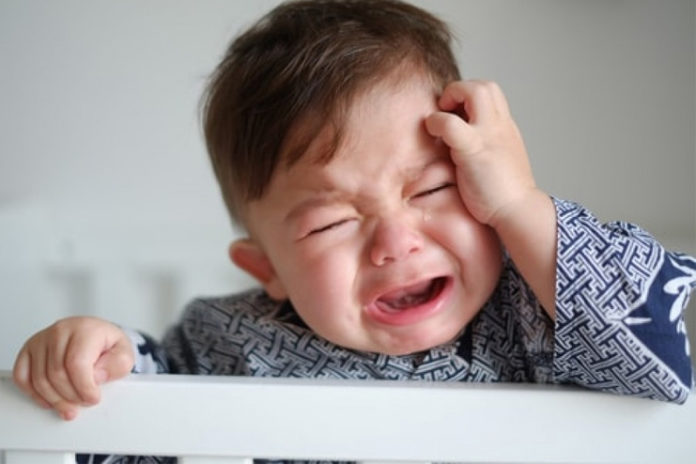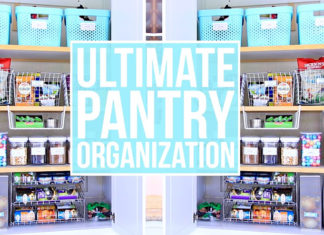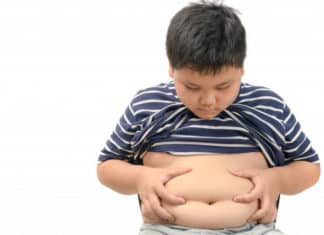Headaches offer more uncomfortable and painful episodes for both kids and adults. How would you know if your little one has a headache? Though painful they are invisible to the eye. It is not easy to detect them.
It is most common for the babies to develop various types of headaches similar to the adults. It is more important to pay attention to the symptoms of the headache at the earlier stages before the situation gets worse. There may be the case sometimes that babies get headaches without any symptoms. Studies reported that headache prevalence in children between the age of 3-6 years increases at the age of 7 years. You will get to know more in this article about the headache symptoms and the home remedies to alleviate the symptoms.
Types Of Headaches That Babies Might Experience:
We are used to deal with the various types of headaches in our everyday life. Babies do experience the headaches but not the same way that the adults experience.
Some of the headaches that babies might suffer from include:
1. Migraine:
It is one of the forms of headache that is easy to recognize. It is a more severe form of the headache that is more common in adults. It is usually accompanied with various other symptoms including:
● Sensitivity to light and sound
● You may experience the pain across the eye, jaw, or forehead
● Vomiting is common in the severe case of migraine
If you notice the following symptoms in your baby, they might be experiencing the migraine which might offer the unpleasant experience.
2. Stress Headache:
Emotional stress, exposure to the continuous loud noises, bright lights, being in front of the screen for the long time, and insufficient water may contribute to the headache in adults. The similar way babies get the headache when they are overstimulated.
3. Cluster Headache:
It is one of the more severe forms of the headache under which the headache is more on one side of the head. It may last for few hours and may get repeated for a few time in a week. Your baby may express you when they experience this headache by holding, rubbing the side of their head.
4. Chronic Daily Headache:
Chronic daily headache may result form the infection, head injury, or taking a pain medication. Using a non prescription medication may lead to the headache.
Signs and Symptoms Of Headache In Babies:
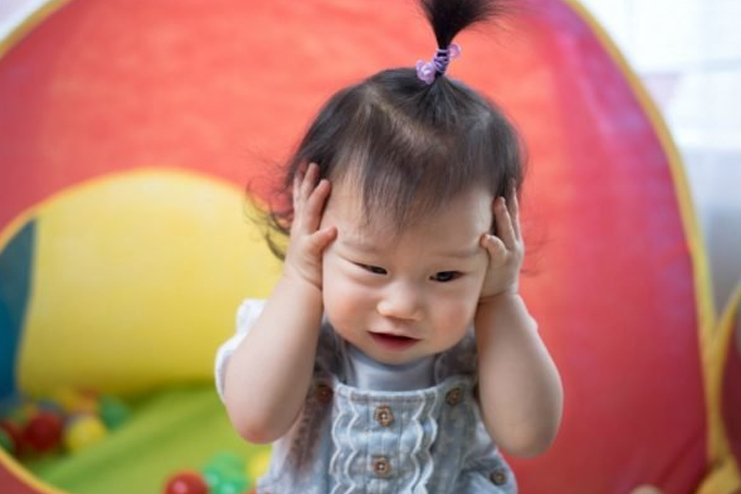
The symptoms may vary depending on the age and the type of headache that your baby experiences. For example, a very young baby might not be able to touch their head to indicate their pain. On the other hand, even the toddlers who can talk may not be able to identify that it is their head that is hurting them.
looking at the symptoms is one of the best ways to identify headaches in babies. Here are a few headache signs in babies:
● Crying
● Holding or trying to hold their head
● Seeming more irritable
● Banging their head
● Pulling the ears
● Poor appetite
● Baby seems fussier and more sensitive to the light.
It is difficult to pinpoint the type of headache depending on the symptoms especially with the younger kids who can not express their symptoms. However certain tough symptoms fall into a specific category of the headache.
A. Migraine symptoms:
Migraine may result in the following:
May cause the pulsating, throbbing, or pounding head pain
● Nausea
● Vomiting
● Abdominal pain
● Extreme sensitivity to light and sound
An infant who is too young to express what is happening with them may try to hold their head or cry.
B. Tension type headache symptoms:
It may cause the following:
● A pressing feeling may occur in the muscles of the head or neck
● Mild to moderate non pulsating pain that may occur on both sides of the head.
● Physical activity may not worse the pain
● Nausea or vomiting may not occur in this type
Younger babies usually withdraw from their routine play and want to sleep more. This type of headache may last from 30 minutes to a few days.
C. Cluster headache symptoms:
This type of headache is usually uncommon in the children below the age of 10 years.
● This type of headache occurs in groups ranging from one in a day to eight.
● Results in the sharp stabbing pain on one side of the head and may last less than three hours
● This may be accompanied by teariness, congestion, runny nose, congestion, or restlessness.
Causes Of Headache In Babies:
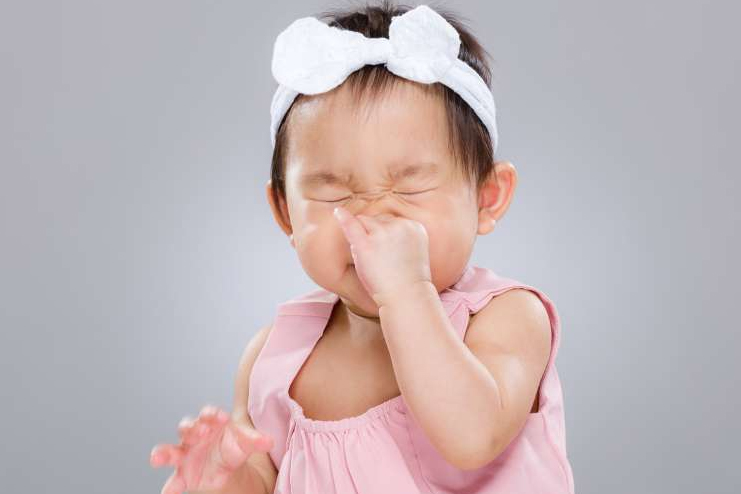
There are a number of reasons for the babies to experience the headache. Find out the common causes of headache in your little one:
1. Hunger and dehydration:
Babies require feeding at the regular intervals of time while they are growing. Lack of milk and enough nutrients may put them at the risk of getting headaches and their bodies to experience the dehydration. They may find the difficulty in maintaining the healthy flow of blood around the body.
Breastfeeding moms should ensure that whether they are producing enough milk for their baby. Ensure to keep your baby full, hydrated, and happy.
2. Head trauma:
Bumps and bruises can cause headaches in babies. It is essential to seek the medical attention even for the minor head injuries. Also, contact your doctor if your child’s head pain gets worse after the injury.
3. Teething:
Teething is one of the major causes of headache in babies. This may put pressure on their jaws and the blood vessels in the head leading to the headache.
4. Cold, flu, and other infections:
Headaches are the most common side effects of cold, flu, and infections. Ensure to consult your doctor if your baby has any kind of symptoms including cough, runny nose, high temperature, and any kind of rash.
5. Stress or head:
If their cot or mattress are inclined reversely, this may make their head position to incline lower than their body putting pressure on their neck which may further leads to the headache. Make sure that your baby sleeps with flat head or a slight elevation under their head. These positions reduce stress on their neck further promoting the proper blood flow and sound sleep.
6. Emotional factors:
Overstimulation of the babies during the day may contribute to headache. Loud noises and bright lights may make the babies get depressed and disturbs their sleep. Ensure to keep the baby’s surroundings calm and pleasant.
7. Certain foods and beverages in toddlers:
Nitrates which is a food preservative found in the cured meat may contribute to the headaches. Too much of caffeine in the sodas, chocolates, and teas can trigger the headaches in babies.
8. Brain problems:
Brain tumor or bleeding in the brain may press certain areas in the brain leading to the headache. Usually this condition may be accompanied by the other conditions including visual problems, dizziness, and lack of coordination.
Treatment For Headache In Babies:
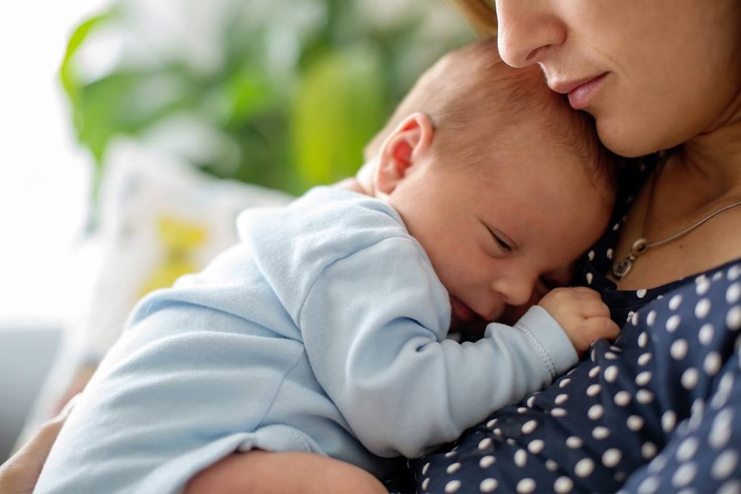
It is very easy to alleviate the mild symptoms of headache in babies. There are some simple techniques that work well even with the sensitive babies.
1. Make sure that they are fed properly:
First and foremost, thing is to ensure that your baby is fed properly and hydrated. The fastest way to alleviate the symptoms of the headache is to get hydrated by drinking plenty of water. This technique works for the babies as well. Feed your baby regularly with little amounts.
2. Offer a cool, calm environment for your baby:
When your baby has headache, they are more likely sensitive to the sensory things including light and sound. Create more calming and cozier environment for your baby especially while they are sleeping. Close the doors and curtains and keep your baby away from the distractions including TV/music. Turn on the fan or air conditioner to keep their body temperature at normal.
3. Try a cool compress:
Cool or warm compress over the head can help the baby to alleviate the symptoms of the headache. Don’t place the ice directly onto the baby’s skin as they damage the baby’s sensitive skin. While applying the warm compress ensure that the cloth is not too hot. Apply the compress over the neck and head. Give a warm bath to your baby. This works well with the babies having headache.
4. Get some fresh air:
Fresh air can work well with the mild headache. Take you baby for a walk in the stroller for a fresh air. Fresh air can do wonders and helps your baby alleviate the symptoms of headache.
5. Offer your baby cuddles and support:
The baby who is in the pain needs all the support that they can get from you. Cuddle your baby and bring them closer to you. Your support and attention may make them unnoticed of their pain. The emotional support can work well and creates wonder by helping baby to alleviate the symptoms of headache.
6. Try over the counter remedies:
If the headache is due to the episode of teething, then there are many remedies to counter the pain. Keep their popping toys in the freezer and allow them to suck or chew on them. This process can help the gums to get relief from the pain.
7. Pain Medication:
The doctor might recommend some pain medication to mitigate the pain. The medications should not be used without prescription. Medications should be given to the baby only under the observation and the proper instructions.
8. Offer plenty of rest:
One of the best remedies to deal with the head ache in babies is to offer them plenty of rest. This remedy works well if the headache is the result of stress or strain.
Home Remedies for Headache In Babies:
Here are a few home remedies in order to prevent the headache and mitigate its symptoms.
1. Feverfew:
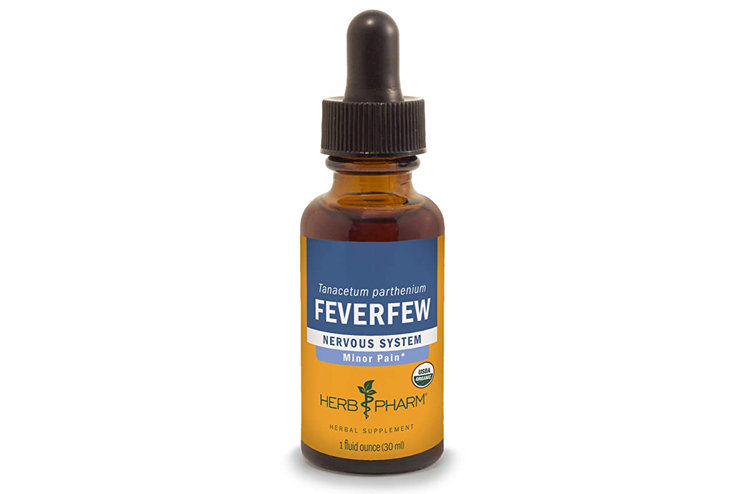
It is a medicinal plant with many pharmacologic properties such as anticancer, anti-inflammatory, cardiotonic, antispasmodic, and a great anema for worms.
A supplement of feverfew can help to alleviate the symptoms of headache in babies. It can reduce the migraine headaches in babies by 25%. Feverfew supplements are available in many forms including fresh, freeze-dried, or dried and can be purchased through stores in the form of capsule, tablet, or liquid extract from.
Note: feverfew is not recommended for the babies under the age of 2 years. Be suwre to consult your doctor before using any feverfew supplement.
2. Peppermint oil:

It contains menthol that helps to ease the pain. Peppermint oil can help to soothe the nerves. It is effective in treating both tension headaches and migraine attacks.
Mix a few drops of this oil with the carrier oil like almond oil and massage it over your baby’s head. Peppermint can open up the sinuses thereby helps the baby to breathe more clearly.
Studies suggest that 10% of peppermint oil in ethanol is the licensed treatment for headache in children above 6 years.
3. Aromatherapy:

Aromatherapy with steam can help to reduce the headache in babies. Mix a few drops of eucalyptus oil or lavender oil to the steamed water and allow your baby to breathe it. This technique can help to mitigate the sinus headache.
As the essential oils are stronger make sure to dilute them properly and you can use the diffuser near the place where your baby sleeps. A sprinkle of cinnamon for the babies who are above 6 months of age is usually safe.
4. Cinnamon:

Anti-inflammatory properties of the cinnamon and its flavor will help to ease the pain in the teething babies. Cinnamon is well known home remedy to reduce the head ache.
Mix a pinch of cinnamon to the warm water and offer it to your toddler before bed. Add a few drops of water to the cinnamon to make the thick paste and apply it over your baby’s forehead and wash it off with lukewarm water after 30 minutes.
5. Cloves:

It is effective in treating the throbbing headache with its cooling and pain relieving properties.
Clove can also be a great remedy to alleviate headache in toddlers above 2 years. Crush the cloves and put them in a handkerchief and allow your baby to inhale the smell of it. Clove essential oil can be a great remedy when used in a diffuser.
What about the headache medications?
Medications should not be offered to the baby without doctor prescription at any age. Here are a few medications that are used for the headache in babies.
● For the babies older than 6 months old Tylenol, or ibuprofen can be offered to mitigate the symptoms of headache.
● Aspirin should not be given to the children below the 18 years old. Aspirin is associated with the Reye’s syndrome when offered to the child and is a life-threatening condition. it may cause the swelling in the brain and liver.
● Babies under the age of 6 months may not be given ibuprofen.
What type of headaches are associated with the severe pain?
The symptoms of the headache may vary depending on the type of headache. Some headaches may be more serious. Some of the symptoms may indicate a underlying serious conditions of the headache may include the following:
- Frequent headache at a very young age
- Baby awakened by the pain of headache
- Headaches that start early in the morning
- Headaches that get worse by the cough and sneezes.
- Frequent vomiting without nausea or any other signs of stomach virus.
- Headache that gets more severe instead of decreasing
- Changes in the vision
- Balancing problems resulting from the weakness in the arms or legs.
- Seizures or epilepsy.
What to do when the babies have a headache?
Here are a few things that you can do to alleviate the symptoms of headache in your baby:
● Continue offering them breastmilk or formula milk.
● Decrease the stimulation during the day.
● Gently rock your baby and avoid vigorous bouncing or swaying
● Put a wash cool cloth over the head of your baby
● Hold patience though the increased crying may be exhausting for you. Take the turns to deal with the headache in your baby.
When to see a doctor?
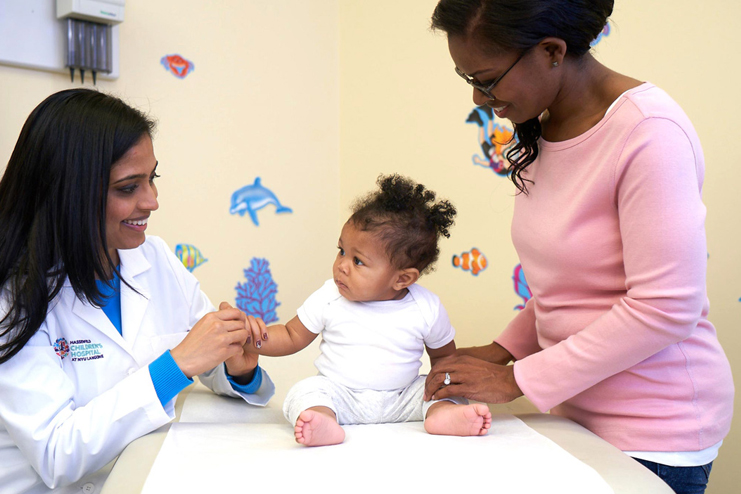
Most of the headaches are not severe. It is essential to seek the medical attention in the following cases:
● If your child experiences a headache that is strong enough to wake them from the sleep.
● The headache gets more worse
● If the headache changes the personality of your baby as they grow.
● If the headache is accompanied by the vomiting or visual changes
● If your child experiences fever, neck pain or stiffness.
In conclusion, headaches can alter the daily activities and the mood of your baby in a great way. Keep the basic things like hydration, and the sleep schedules in line and consult the pediatrician if the basic tools don’t work.




